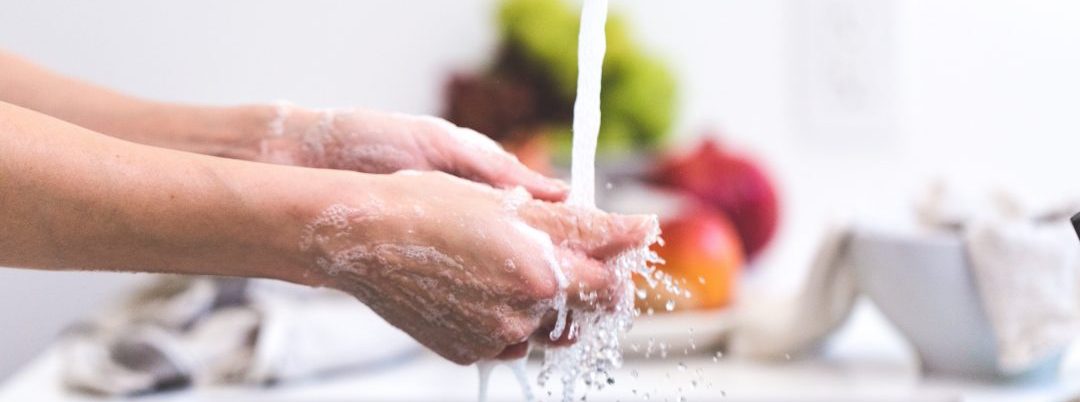
All of a sudden, my playful, adventurous little brother developed an obsession with using hand sanitizer. He had to squirt some into his hands after running outside and before eating dinner. He insisted on using it after touching the dog and before shaking someone’s hand. We didn’t think too much into it, but soon enough he developed another habit: of constantly flicking his fingers and shaking his hands, as if to rid them of something. Soon enough, we made the connection: he was afraid of germs and these habits were meant to keep them away.
We weren’t quite sure how to introduce my brother to the subject of mysophobia (otherwise known as germaphobia). I mean how do you explain it or even say the word mysophobia to an 8-year-old boy without getting a confused or scared look in return? Well, you don’t. We got both. But eventually, after our constant yet subtle attempts to ease his obsession and fear of germs, he became him again and forgot about the big tub of hand sanitizer sitting on the counter.
The Phobia Explained
While creating habits of washing your hands after going to the bathroom and covering your mouth when you cough are necessary precautions against spreading germs, it is possible to take it too far and become obsessed with defending yourself against these invisible threats like my brother did. First coined by Dr. William Alexander Hammond in 1879, mysophobia (or verminophobia, germaphobia, or bacteriophobia) is the pathological fear of contamination and germs. While it sounds simple, there are criteria that must be met in order for a diagnosis to be made, such that the obsession interferes with the individual’s daily activities or threatens one’s life. Other symptoms may include:
- Obsessive hand-washing
- Overuse of sanitizing products
- Excessive cleanliness
- Avoidance of places or things perceived to be infested with germs
Treating Your Fear of Germs
Mysophobia, like other phobias and mental health conditions, does not have to go untreated. A combination of treatment methods, such as exposure therapy, psychotherapy, and the simple education about germs or overly sanitized environments for example, can be helpful. Certain individuals may also benefit from hypnosis, the use of anti-anxiety medication, or therapy specifically designed to treat OCD if they show signs of this condition as well. In my brother’s case, the simple support of his family and an education on good and bad germs easily did the trick. This goes to show that one case may be more extreme or stubborn than the next and beg different treatment methods.
Bringing Attention to Mysophobia
Howie Mandel, beloved actor, comedian, and gameshow host, is one of many who suffers from this harrowing fear of germs. The root of his problem? OCD, as he self-reportedly obsesses over the question ‘What if?’ on a daily basis.
Back in 2009, ABC News’ David Muir shadowed Mandel for two weeks—moving from backstage of Deal Or No Deal, to Mandel’s home in California, and finally his penthouse suite in Las Vegas—and witnessed the manifestation of this obsession firsthand. As many have come to know, Mandel insists on greeting the contestants on Deal Or No Deal with fist bumps instead of shaking their hands. (This always left me wondering about the anxiety he feels when falling victim to an overexcited contestant’s bear hug.) Muir also observed as Mandel instructed makeup artists to use new sponges every single day and required his money be washed before handling it himself, to further avoid coming into contact with germs. He also avoided hand rails at all costs and even revealed that his decision to be bald is due to his mysophobia.
According to Mandel, his biggest fear is being triggered by irrational thoughts at inconvenient times. “If I’m triggered and I get some weird thought in my head that can’t go, then my day is stopped. My life stops,” he said. He follows this up with the example of a time he missed an important appointment. He was running on schedule when it was interrupted by the thought that maybe he didn’t lock the door. So, failing to oppose his OCD, he went back to the door again and again to check. After the 32nd time, Mandel didn’t turn the knob but punched it in frustration instead.
By the time Muir’s two weeks were up, it was clear that Mandel suffered on a great level with mysophobia as well as OCD. And that was okay with him, as the project served to shed some light on the crippling effects of these mental illnesses. Mandel continues to use his fame to raise awareness and defeat the stigma surrounding mental health today.
Let’s keep in touch! Sign up to receive our newsletter:
Start a Relationship with An Exceptional Counselor
- Skilled and caring professional counselors
- Accepting all major and most insurances
- High-touch customer service & premium benefits
- Same- or next-day appointments
- Ultra-flexible 23.5hr cancellations













